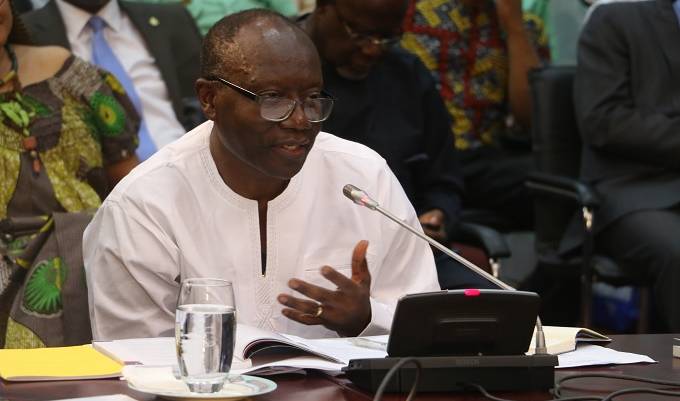Ghana’s Finance Minister Ken Ofori-Atta has stated emphatically that the Finance Ministry of Ghana under his leadership will not spend more than budgeted in the upcoming 2020 election.
Ghana had always experienced budget deficits during election years as a result of the pressure from the electorate for projects in their areas and the pleasure of governments to please and woo potential voters.
Speaking at a PricewaterhouseCoopers (PwC) Post Budget Forum 2019 on November 19, 2018, Ghana’s Finance Minister, Ken Ofori-Atta stated that irrespective of the pressure posed by electorates, he is ready to challenge the status quo by ensuring Ghana do not overspend in election 2020.
He emphasized that the incumbent government has a mantra of checking Ghana’s expenditure in elections and as such he is ready to keep that record by ensuring there is no budget overrun.
“The NPP government from 1969, 1972 until the coup was very disciplined and in 2004 we didn’t over spend for the elections and that is a fact and so I am not going to do that in 2020. I have to follow the tradition. That is the reality. And that’s why in a sense, we are launching our infrastructure issues in 2019 because that becomes the target”
In a related development, Economist, Professor Peter Quartey has cautioned that the country could return to the International Monetary Fund (IMF), for financial support if the government fails to control its expenditure during the 2020 elections.
He explains that the unbridled spending associated with most election years has affected the running of the economy in the succeeding years.
Prof. Quartey’s comments come on the back of the assurance from President Akufo Addo that his administration will not see the country seek support from the Fund after finishing the current program.
The Way forward to curb overspending during election years
The pattern over the years in Ghana had shown an increase in budget deficits during election years.
Last minute execution of development projects during election years by successive governments has been identified as the major cause of the budget overruns or deficits that the country has experienced over the years.
Meanwhile, Director of the Institute of Statistical, Social and Economic Research (ISSER) of the University of Ghana, Professor Felix Asante, in 2016 at a Graphic Business Meeting said the government must remain firm in its commitments and must not get carried away by the pressure to spend.
Tracing the trend of high spending by various governments since 2000, Prof. Asante said studies had shown that it took three years to correct the economic imbalances as a result of deficits incurred in election years, only for the pattern to start again the following year.
He indicated that in 2000, many of the challenges faced by Ghana’s economy were caused by fiscal imbalances and excessive money supply, while in 2004 the challenges were as a result of high expenditure mainly due to unplanned higher wage bills, the payment of subsidies on petroleum products and the domestic debts of the Tema Oil Refinery (TOR), the Electricity Company of Ghana (ECG) and the Ghana Water Company Limited (GWCL).
He said in 2008, the government exceeded its revenue targets but its expenditure also outpaced its revenue mobilisation, while the economy experienced high food and crude oil prices on the international market.
He said the overrun in 2012 was due mainly to the repayment of domestic debt, personal emoluments and the payment of salary arrears and total investments, all of which contributed to the almost doubling of expenditure that year.
A MUST READ: Curbing election year budget-deficit
Prof. Asante cited another challenge faced by the Ghanaian economy during and just after election years as volatile exchange rates, with a semblance of restoration in the first or second year after elections.
However, these budget overruns in election years are as a result of Abuse of Incumbency; where government in power uses state resources to help its political party to capture power.
To be able to curb budget deficit in election year, Parliament of Ghana must as a matter of urgency ensure the Passage of the Public Financial Management Bill (2016) to help provide some relief to managers of the public purse in future.
In this regard they will be guided by law to remain disciplined in the disbursement of state funds.



